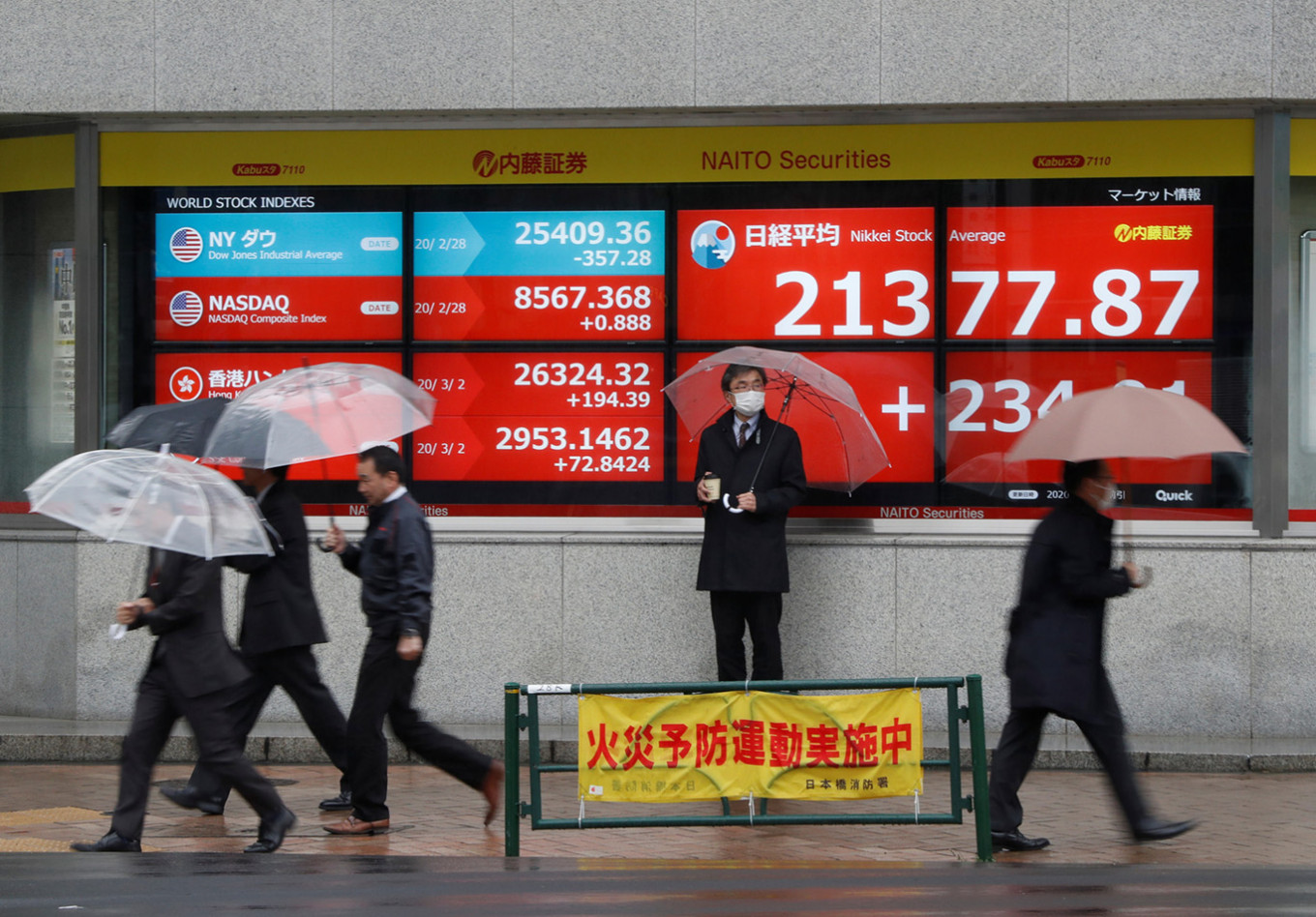EQUITIES
Shares in Asia-Pacific were largely lower Monday as investors reacted to China’s inflation data for March. The higher-than-expected data release comes as mainland China is fighting to control its worst wave of COVID-19 since the beginning of the pandemic in early 2020.
European markets also are set to pull back to begin a week of key central bank meetings and U.S. inflation prints.
Hong Kong’s Hang Seng index dropped 2.74% to lead losses regionally, while the Shanghai composite was down 2.15%
Elsewhere, the Nikkei 225 in Japan slipped 0.61%, South Korea’s the KOSPI dipped 0.26%, and Singapore’s Straits Times index fell 0.52%.
Australia’s S&P/ASX 200 bucked the overall trend regionally as it climbed slightly.
OIL
Oil prices were lower on Monday as China lockdowns continued. Concerns about China's growth was the main reason for the fall in oil prices today with Shanghai's lockdown showing no signs of being lifted, raising concerns about demand from the world’s biggest crude importer.
China is struggling to halt the highly infectious Omicron variant with lockdowns and repeated mass testing as it pursues its Covid Zero strategy. Shanghai reported a record of almost 25,000 new cases on Saturday, according to the municipal government. The flare-up has led to disruptions at ports and prompted some refiners to trim operating rates.
In the afternoon of Asia trading hours, with international benchmark Brent crude futures down 1.60% to $100.77 per barrel. U.S. crude futures shed 1.46% to $96.49 per barrel.
CURRENCIES
The benchmark 10-year yield stays high at 2.770% on Monday, at a more than three-year high.
The dollar also stood tall, was up after topping 100 for the first time in nearly two years on Friday, bolstered by prospects of aggressive rate hikes by the U.S. Federal Reserve to contain soaring inflation. The U.S. dollar index, which tracks the greenback against a basket of its peers, was at 100.011.
GOLD
Gold prices slipped in range-bound trading on Monday as surging Treasury yields boosted the dollar and countered fresh concerns about the war in Ukraine.
Spot gold was down 0.28% at $1,941.20 per ounce, after hitting a more than one-week high earlier in the day. U.S. gold futures were flat at $1,944.70.
Palladium extended gains fuelled by London's decision to block trading of the metal from Russia. It was up 2.85% at $2,489.00 after hitting a more than two-week high earlier in the session. The auto-catalyst metal had gained 8.6% on Friday after newly refined Russian platinum and palladium were suspended from trading in London, the metals' biggest trade hub.
Spot silver shed 0.2% to $24.00 per ounce and platinum rose 0.5% to $979.00.
ECONOMIC OUTLOOK
Shares slipped on Monday, as soaring inflation, geopolitical uncertainty, and aggressive Federal Reserve are muddying the outlook. Deepening COVID-19 lockdowns in China also rippled across markets, with commodity prices and commodity currencies down along with Chinese equities.
China’s producer inflation for March rose more than expected, as the PPI surged 8.3% year-on-year, data from the National Bureau of Statistics (NBS) showed on Monday. Upstream pressures also pushed up consumer prices, which rose 1.5% year-on-year, the fastest in three months, speeding up from 0.9% in February and beating expectations of 1.2%. Russia's invasion of Ukraine, persistent supply chain bottlenecks and production snags caused by local COVID-19 flare-ups added to commodity cost pressures.
Caution gripped markets ahead of central bank meetings and U.S. inflation data. A U.S. CPI report due on Tuesday is expected to show annual inflation rise 1.2%, taking annual inflation to an 8.5%. Inflation will also be front and centre for the ECB meeting on Thursday where the risk is for a hawkish slant to the statement.
In Europe, French President Emmanuel Macron and far-right challenger Marine Le Pen progressed through the first round of voting in the French presidential election and will enter a tightly contested run-off on April 24. A Le Pen victory could send shockwaves through France and Europe in ways similar to Britain's vote in 2016 to leave the EU, and relief at the first-round result was soon capped.
Earnings season kicks off this week with JP Morgan, Wells Fargo, Citi, Goldman Sachs and Morgan Stanley all due to report.













